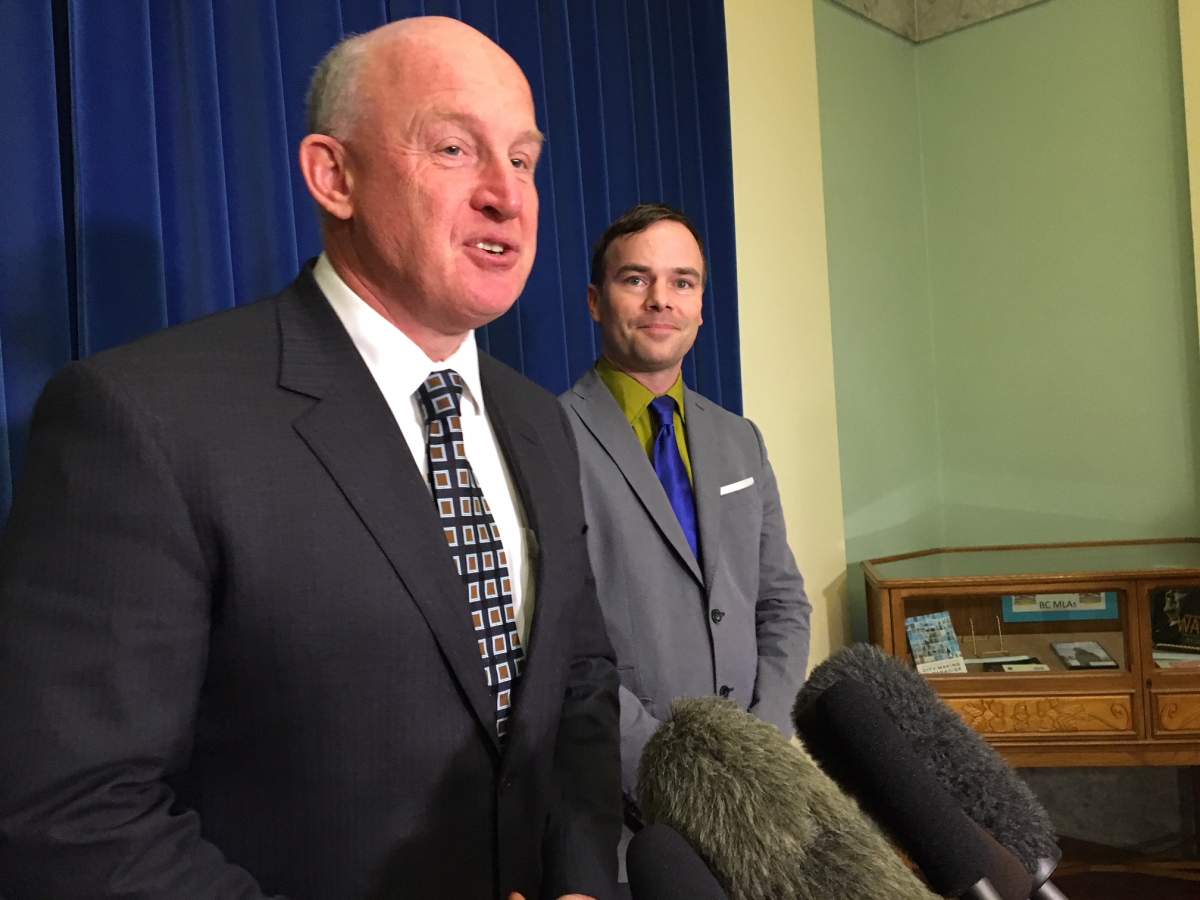The B.C. government is assuring British Columbians that there will be enough cannabis available when the drug becomes legal recreationally on Oct. 17. But Public Safety Minister Mike Farnworth says there may be some strains of the drug that sells out.

“Given uncertain projections from licenced producers establishing new operations, and undefined demand from British Columbians in a new market, it is possible in future that some products may not be available initially in the quantity required by the B.C. market,” said Farnworth. “We know it will take time to find the right balance, but government will continue to monitor demand and supply.”
Legal marijuana will be sold in government-run stores and private stores. There will be one government store, in Kamloops, open on Oct. 17. There will be no private stores open under the new permitting system.
Farnworth said on Thursday that the province has received more than 100 applications and are still working with municipalities to determine where the stores will go.
“We know it’s been a tight timeline — we know there’s local government elections,” said Farnworth. “This is the biggest public policy shift in this country in decades. So, it’s exciting but it’s like anything that’s new, you know there’s going to be some hiccups along the way and that’s just a fact of life.”
The applicants for the private stores will have to go through background checks and it is unclear how many of the current applicants will actually get stores. Currently, there are about 1,000 liquor stores in British Columbia, a combination of private and government-run stores.

Get daily National news
The province is not anticipating the same sort of number of cannabis stores as liquor stores. Farnworth says a significant portion of the population uses alcohol while research shows between 20 to 25 per cent of British Columbians have tried or use marijuana regularly.
WATCH HERE: Legal pot big topic at annual meeting of B.C.’s municipalities

What makes legalization unique in British Columbia is the high number of dispensaries in Victoria and Vancouver. Those dispensaries can apply for permits, but they have to go through the same application process as all potential retailers.
It is unclear whether the province will have all the permits processed by Oct. 17, and the province will not immediately start shutting down dispensaries that stay open after legalization.
WATCH HERE: Government workers could face border problems after marijuana legalization

Farnworth says the B.C. government will have an enforcement branch under the Ministry of Public Safety. The enforcement body will have the ability to seize product from stores operating without a permit and then levy a fine for twice the value of the product seized.
Premier John Horgan was asked on Thursday about the province’s level of readiness. He says the government will do its best to protect children and public safety while making sure demand is met when marijuana becomes legal later this month.
Horgan says he has heard about the concerns about supply shortages and can’t stop people from going back to the illegal market.
“So we’re doing our level best to meet public need but also assure the public that cannabis distribution is not going to be on every street corner. We’re going to protect kids. We’re going to make sure public safety is paramount,” said Horgan.
— With files from The Canadian Press









Comments
Want to discuss? Please read our Commenting Policy first.